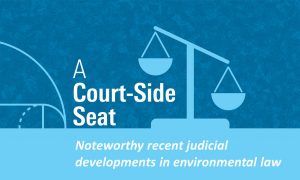The popular term “PropTech” is projected to disappear as real estate digitization continues, the impact of the Russia-Ukraine conflict on the U.S. housing market is analyzed, China’s home prices continue to fall, and more.
Commercial Real Estate Brokerages in an Uncertain Russian Market
Several commercial real estate firms have joined the growing list of companies temporarily suspending—or outright terminating—property and facility management operations in Russia amid economic sanctions and mounting international pressure. CBRE is the latest to make such a move, discontinuing its Russian leasing, investment and property management operations and denouncing Russia’s invasion of Ukraine in a statement issued March 7. Other major players, including Savills, Knight Frank, and Colliers, have already suspended operations in the country, citing similar concern for international sanctions and the humanitarian impact of the invasion. Colliers is going even further to suspend operations in Belarus as well. Recently, global real estate service giant JLL switched course, issuing a formal statement that “with great sadness,” it will begin the process of separating from its domestic operations in Russia, though not commenting on whether the separation will be temporary or permanent. This is a significant change from just earlier this month , where, when asked about pulling operations from the country, JLL stated it would stay abreast of the situation abroad and continue to ensure the safety of its people and clients.
Join Us for Bisnow’s National Landing Update: NoVa’s Newest Live, Work, Play Destination 03.22
Jamie Bobotek, Pillsbury partner, will be moderating during the “Redefining Live-Work-Play: A National Landing Development Outlook” panel at Bisnow’s National Landing Update: NoVa’s Newest Live, Work, Play Destination event on March 22. For more information and to register, please visit the event page.
The Future of Airport Infrastructure in a Post-Pandemic World
In the wake of the COVID-19 pandemic, many service industries are reevaluating their physical footprint, and the aviation industry is no exception. Opportunities abound for developers, designers, and contractors to update and expand airport terminals to accommodate traditional needs while also meeting the growing demand for more open space (including larger outdoor areas in terminals and larger cargo facilities to meet the needs of Amazon, FedEx and UPS).
Real Estate & Construction News Round-Up 03/02/22
Economic sanctions placed on Russia cause a shift in the U.S. real estate market, investments in virtual real estate continue to grow as market equilibrium returns, climate change concerns have made a notable impact on regional real estate interest, and more.
FCC Order Bans Certain Arrangements to Promote Competition in Multi-Tenant Buildings
On February 15, 2022, the Federal Communications Commission (FCC) released a Report and Order adopting new rules to further broadband competition for the millions of Americans living and working in apartments, public housing, office buildings, and other multiple-tenant environments (MTEs). In their recently-published client alert, Pillsbury colleagues Glenn Richards and Betsy Craig discuss how the commission rules out certain revenue sharing agreements, requires disclosure of exclusive marketing arrangements and restricts sale-and-leaseback arrangements.
ULI San Francisco: Follow the Money—What the $1 Trillion Infrastructure Bill Means for the Bay Area
On March 15, 2022, industry experts Rob James, Orion Fulton, and Georgia Gann Dohrmann will discuss future transportation projects that could benefit the Bay Area during the webinar, “ULI San Francisco: Follow the Money—What the $1 Trillion Infrastructure Bill Means for the Bay Area.” The webinar will focus on the potential impact of the recently passed federal infrastructure bill on the region’s transportation sector and what type of growth and projects it could expect in the coming future.
Learn more and register for this webinar by visiting the event page.
DOE Establishes $6 Billion Civil Nuclear Credit Program
Pillsbury colleagues Elina Teplinsky, Jorge Medina, Sidney Fowler, and Ashley Meredith discuss the U.S. Department of Energy’s (DOE) announcement of the release of a Notice of Intent (NOI) and Request for Information (RFI) describing and seeking feedback on its plan to implement the $6 billion Civil Nuclear Credit (CNC) Program that is part of the Bipartisan Infrastructure Law (BIL).
Real Estate & Construction News Round-Up 02/23/22
Construction contractors adjust to extreme changes in material prices, China expands real estate lending support to its larger cities, semiconductor demand becomes a gem for industrial real estate, and more.
A Court-Side Seat: Case Law Update (February 2022)
It is already early in 2022, but several important environmental cases have already been decided by the federal district and federal appellate courts.






